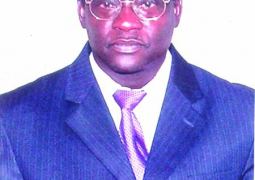
l-Muhajir
ibn Qunfuzh related that he greeted the Prophet, upon whom be peace, but that
the latter did not return his salutation until he had made ablution: “There is
nothing that prevented me from responding to you except that I do no like to
mention the name of Allah unless I am in a state of purity.” Said Qatadah,
“Because of this, al Hassan hated to recite the Qur’an or mention Allah’s name
unless he had performed ablution. (Related by Amad, Abu Dawud, an Nasa’i and
Ibn Majah.) Reported Abu Juhaim ibn al Harith, “The Prophet, upon whom be
peace, met a person at the well of Jaml, who greeted him, but he did not return
his greeting until he had wiped his face and hands.” (Related by Ahmad,
al Bukhari, Muslim, Abu Dawud and an Nasa’i.) This action was one of
preference, not of obligation. Mentioning the name of Allah is permissible for
the one who is in a state of purity, one who has a minor impurity, a person in
post-sex impurity, or one who is standing, sitting, and so on. Said ‘Aishah,
“The Messenger of Allah used to remember Allah at all times.” (Related by “the
five,” except for an Nasa’i.) Al Bukhari recorded it in mu’alliq form.)
Reported ‘Ali, “The Messenger of Allah would come from relieving himself,
recite to us and eat meat with us. Nothing would stop him from the Qur’an
except post-sex impurity.” (Related by “the five.” At Tirmizhi and Ibn as Sakin
categorized it as sahih.)
Going
to sleep
Al-Barra’
ibn ‘Aazib reported that the Messenger of Allah, upon whom be peace, said,
“When you go to your bed, perform ablution, lie on your right side and then
say, ‘O Allah, I submit my soul to You, and I turn my face to You. I entrust my
affairs to You. I retreat unto You for protection with hope and fear in You.
There is no resort and no savior but You. I affirm my faith in Your books which
You revealed and in Your prophets you sent.’ If you die during that night, you
will be along the natural path. Make it your final statement (of the night). He
reported that he repeated this supplication to the Prophet, upon whom be peace,
and he said, “...and Your messengers.” The Prophet interjected, “No...’and the
prophets You sent.” (Related by Ahmad, al Bukhari, and at Tirmizhi.) This also
applies to one who is in post-sex impurity. Ibn ‘Umar asked the Prophet, “O
Messenger of Allah, can one of us sleep while he is in post-sex impurity?” The
Prophet answered, “Yes, if he makes ablution.” Reported ‘Aishah, “When the
Prophet, upon whom be peace, wanted to sleep in a state of post-sex impurity,
he would wash his private parts and perform ablution.” (Related by “the
group.”)
a:
To remove a sexual impurity
If
a person in a state of post-sex impurity wants to eat, drink or have
intercourse again, he should perform ablution.
Said
‘Aishah, “When the Prophet, upon whom be peace, was in a state of impurity
because of intercourse and wanted to eat or sleep, he would perform ablution.”
‘Ammar ibn Yasar reported that, the Prophet permitted a person in post-sex
impurity to eat, drink or sleep if he performed ablution first. (Related by
Ahmad and at-Tirmizhi, who classified it as sahih.)
Abu
Sa’eed reported that the Prophet, upon whom be peace, said, “If one has
intercourse with his wife and wants to repeat the act, he should perform
ablution.” (Related by “the group,” except for alBukhari. Ibn Khuzaimah, Ibn
Hibban and al Hakim recorded it with the addition, “It makes the return more
vivacious.”)
Before
performing ghusl
It
is preferred to perform ablution before ghusl regardless of whether that
particular ghusl was an obligatory or a preferred act. Said ‘Aishah, “When the
Messenger of Allah, upon whom be peace, performed post-sex ghusl, he would
begin by washing his hands and then pour water from his right hand to his left
and wash his private parts. He would then perform ablution..” (Related by “the
group.”)
a:
Before eating food touched by fire
Said
Ibrahim ibn ‘Abdullah ibn Qarizh, “I passed by Abu Hurairah while he was
performing ablution and he said, ‘Do you know why I am making ablution? It is
because I ate some yoghurt dried over a fire, for I heard the Messenger of
Allah say, ‘Perform ablution before eating food touched by fire.” (Related by
Ahmad, Muslim and “the four.”)
‘Aishah
related that the Prophet, upon whom be peace, said, “Perform ablution from
whatever touches fire.” (Related by Ahmad, Muslim, an-Nasa’i and Ibn Majah.)
This order is one of preference as the following hadith makes clear: ‘Amr ibn
Umayyah azhZhamari said, “I saw the Messenger of Allah, upon whom be peace,
cutting a piece of a sheep’s shoulder and eating it. He was then called to
prayer. He put the knife down, prayed, and did not perform another ablution.”
(Related by al-Bukhari and Muslim.)
b:
Renewing the ablution for every prayer
Said
Buraidah, “The Prophet, upon whom be peace, made ablution for every prayer. On
the day of the conquest of Makkah, he made ablution, wiped over his socks and
prayed a number of times with just one ablution. ‘Umar said to him, ‘O
Messenger of Allah, you did something that you have not done (before).’ He
answered, ‘I did it on purpose, ‘Umar.”’ (Related by Ahmad, Muslim and others.)
Said
Anas ibn Malik, “The Prophet, upon whom be peace, used to make ablution for
every prayer.” He was asked, “And what did you people use to do?” Malik said,
“We prayed the prayers with one ablution unless we nullified it.” (Related by
Ahmad and al-Bukhari. )
Abu
Hurairah reported that the Prophet said, “Were it not to be a hardship on my
people, I would order them to make ablution for every prayer.” (Related by
Ahmad with a Hassan chain.)
Ibn
‘Umar reported that the Prophet, upon whom be peace, said, “Whoever makes
ablution while he is already in a state of purity will have ten good deeds
written for him.” (Related by Abu Dawud, atTirmizhi, and Ibn Majah.)
Notes
of importance concerning ablution
It
is permissible to speak while performing ablution. There is nothing reported
from the Sunnah that prohibits it.
Making
supplications while washing the extremities is based on false hadith. It is
best for the person to use only the supplications mentioned under the Sunnah
Acts of Ablution.
If
the person who is making ablution has a doubt concerning how many times he has
washed a particular part of the body, he should go by the number he is certain
about.
If
any barrier or substance with weight, such as wax, is found on the body, it
would invalidate one’s ablution unless it is removed and the ablution is
performed again. Coloring, like henna, is permissible, as it does not affect
the ablution’s correctness.
People
with unusual circumstances (i.e. women with “prolonged flows of blood”), people
who cannot control their urine, people with flatulence, and so on, should
perform one ablution for each prayer whether their problem exists all or part
of the time. Their prayers will be acceptable even while their problems are
occurring.
One
may be assisted by others in performing ablution.
One
may use a towel to dry himself during any time of the year.
To
be continued




